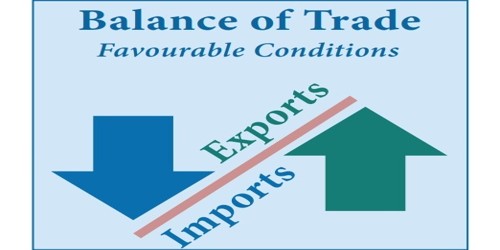
Managing personal finances can have a significant impact on mental health and overall wellness. When we feel in control of our finances and have a plan in place, it can lead to a sense of security and peace of mind. Conversely, financial stress and uncertainty can cause anxiety and even depression.
This is why personal finance is not just about money; it's about taking care of ourselves and our mental well-being. By developing financial literacy and effective money management skills, we can improve our financial wellness and reduce stress.
Key Takeaways:
- Managing personal finances can positively impact mental health and overall wellness.
- Financial stress and uncertainty can cause anxiety and depression.
- Developing financial literacy and effective money management skills can improve financial wellness and reduce stress.
The Importance of Personal Finance
Personal finance refers to the management of money at an individual level. It includes budgeting, saving, investing, and managing debt. Achieving financial stability and security requires financial literacy and effective money management skills. In this section, we will explore the reasons why personal finance is essential and the benefits of having a good understanding of financial literacy and money management.
Financial literacy refers to the knowledge and skills required to make informed and effective decisions about money. It involves understanding financial concepts such as budgeting, saving, investing, and debt management. Having financial literacy enables individuals to make informed decisions and take control of their financial lives.
The importance of personal finance cannot be overstated. Here are some reasons why:
- Financial stability: Personal finance helps individuals achieve financial stability. This means having enough money to cover basic needs and unexpected expenses. It also means having financial security for the future.
- Debt management: Personal finance skills are crucial for managing debt. Managing debt effectively can help individuals reduce their financial burden and achieve financial goals.
- Financial independence: Personal finance skills can help individuals achieve financial independence. This means being able to make financial decisions without relying on others.
- Financial security: Personal finance skills can help individuals achieve financial security. This means having enough money to cover basic needs and unexpected expenses, as well as having savings and investments that provide income for the future.
Money management skills are also critical for achieving financial stability and security. Effective money management involves creating and sticking to a budget, saving money, investing wisely, and managing debt. It requires discipline, planning, and a long-term view of financial goals.
In summary, personal finance is essential for achieving financial stability, security, and independence. Having financial literacy and effective money management skills are critical for managing debt, saving money, and investing wisely.
Budgeting for Financial Success

Budgeting is the foundation of effective money management. It helps you track your income and expenses, prioritize your spending, and achieve your financial goals. By creating a budget, you can take control of your finances and make informed decisions about your money.
Here are some practical tips for creating and sticking to a budget:
- Track your spending: Write down all your expenses for a few weeks or a month to get a clear picture of where your money is going. You can use a notebook or an app to keep track of your spending.
- Categorize your expenses: Group your expenses into different categories, such as housing, groceries, transportation, and entertainment. This will help you see where you are spending the most money.
- Set goals: Identify your short-term and long-term financial goals, such as paying off debt, saving for a down payment on a house, or establishing an emergency fund. Your budget should reflect your goals and help you achieve them.
- Create a plan: Based on your income and expenses, create a plan for how you will allocate your money each month. Make sure your plan includes contributions to your savings and debt payments.
- Stick to your budget: Once you have a budget in place, it's important to stick to it. Review your budget regularly and adjust it as needed. Be mindful of your spending and avoid unnecessary expenses.
Benefits of Budgeting
Budgeting offers many benefits, including:
| Benefits of Budgeting | Explanation |
|---|---|
| Better financial control | With a budget, you know where your money is going and can make informed decisions about your spending. |
| Reduced stress | When you have a budget in place, you don't have to worry about overspending or falling behind on bills. |
| Increased savings | A budget helps you save money for short-term and long-term goals, such as a vacation or retirement. |
| Debt reduction | By prioritizing debt payments in your budget, you can reduce your debt and improve your overall financial health. |
By following these budgeting tips and taking advantage of its benefits, you can achieve financial success and improve your overall money management skills.
Saving Money: Building Financial Security
When it comes to achieving financial goals, saving money is a crucial step. Building financial security through saving can help provide a safety net for unexpected expenses and contribute to long-term financial stability. Here are some strategies for successful saving:
- Create a Budget: A budget can help identify areas where money is being spent unnecessarily and allow for more intentional spending. By allocating a portion of income towards savings, it becomes easier to prioritize building financial security.
- Set Realistic Goals: Setting specific goals for saving can make it easier to stay motivated and track progress. Whether it's saving for a down payment on a house, a vacation, or retirement, having a clear target can help guide financial decisions.
- Automatic Savings: Setting up automatic transfers from a checking account to a savings account on a regular basis can help ensure consistent saving without relying on willpower alone.
It's also important to consider the different types of savings accounts available. For short-term goals, a high-yield savings account can provide easy access to funds with minimal risk. For long-term goals like retirement, an individual retirement account (IRA) or a 401(k) account through an employer can offer tax benefits and potential for higher returns.
| Savings Account Type | Pros | Cons |
|---|---|---|
| High-Yield Savings Account | Easy access, low risk | Lower interest rates |
| Individual Retirement Account (IRA) | Tax benefits, higher returns | Penalties for early withdrawal |
| 401(k) through Employer | Employer contributions, tax benefits, professional management | Limited investment options, penalties for early withdrawal |
Regardless of the type of account, consistent saving is key to building financial security. By making saving a priority and utilizing the right tools and accounts, it's possible to achieve financial goals and secure a stable financial future.
Investing for the Future

Investing is a crucial element of financial planning, especially when it comes to achieving long-term financial goals. Whether you're planning for retirement, saving for a down payment on a house, or putting money aside for your child's education, investing can help you reach your objectives.
Retirement Planning
Retirement planning is one of the most important reasons for investing. Investing in a retirement account, such as a 401(k) or an IRA, can help you accumulate savings over time and ensure you have enough money to support yourself during your retirement years.
One effective strategy for retirement planning is to start early and make consistent contributions. By starting early, you can take advantage of compound interest, which allows your money to grow over time. Making regular contributions, even small ones, can help you build a substantial nest egg over time.
Types of Investments
There are many different types of investments to consider, each with its own benefits and risks. Some common types of investments include:
- Stocks: Ownership in a company with the potential for capital appreciation and dividends.
- Bonds: Debt securities that pay interest and provide a fixed income stream.
- Mutual funds: Diversified portfolios of stocks, bonds, and other investments managed by a professional.
- Exchange-traded funds (ETFs): Similar to mutual funds but trade like stocks on an exchange.
- Real estate: Investment in physical property with the potential for rental income and appreciation.
It's important to do your research and consult with a financial advisor before making any investment decisions. Consider your risk tolerance, financial goals, and time horizon when choosing investments.
Setting Financial Goals
When it comes to investing, it's important to set clear financial goals and establish a plan for achieving them. A financial advisor can help you create a personalized investment strategy based on your unique circumstances, risk tolerance, and financial objectives.
Some common financial goals include:
- Saving for retirement
- Buying a house
- Saving for your child's education
- Building an emergency fund
Having a clear understanding of your financial goals can help you make informed investment decisions and stay on track towards achieving them.
Conclusion
Investing can be a powerful tool for achieving your financial goals, whether you're planning for retirement or saving for a major purchase. By understanding the different types of investments available and setting clear financial objectives, you can build a solid investment portfolio that supports your long-term financial well-being.
Managing Debt: Breaking Free from Financial Burden
Managing debt is an essential component of effective money management and achieving financial goals. Whether it's credit cards, loans, or mortgages, debt can quickly become overwhelming and stressful. However, with a few practical strategies, you can take control and break free from the burden of debt.
Assess Your Debt Situation
Before you can start managing your debt, you need to know exactly what you owe and to whom. Create a list of all your debts, including the total amount owed, interest rates, minimum monthly payments, and due dates. This will give you a clear picture of your debt situation and help you prioritize which debts to pay off first.
Create a Budget
Creating a budget is crucial for effective debt management. By tracking your expenses and income, you can identify areas where you can cut back on spending and allocate more towards paying off debt. Use a budgeting tool or app to help you stay on track and avoid overspending.
Make a Debt Payment Plan
Once you have assessed your debt situation and created a budget, it's time to make a debt payment plan. Determine how much you can afford to pay towards each debt and prioritize paying off high-interest debts first. Consider using the debt snowball or avalanche method to pay off your debts more efficiently.
Seek Professional Help
If you're struggling with debt and can't seem to make progress on your own, consider seeking professional help. A credit counselor can provide guidance and support to help you manage your debt and create a plan for paying it off.
Stay Committed to Your Debt Repayment Plan
Breaking free from debt requires commitment and discipline. Stay focused on your debt repayment plan and avoid taking on new debt. Celebrate small victories along the way and stay motivated by setting realistic financial goals for yourself.
Conclusion
Managing debt is an essential part of money management and achieving financial goals. By assessing your debt situation, creating a budget, making a debt payment plan, seeking professional help if necessary, and staying committed, you can break free from the burden of debt and achieve financial freedom.
Building Financial Literacy

Financial literacy is a crucial component of personal finance and can make a significant difference in an individual's money management skills and overall financial wellness. However, many people lack adequate financial knowledge, and this can lead to poor financial decision-making and long-term financial struggles.
Fortunately, there are many resources available to help individuals improve their financial literacy and develop a deeper understanding of money management. Here are some tips for building financial knowledge:
- Read books and articles on personal finance. There are numerous books and articles available that cover various aspects of personal finance, from budgeting and investing to debt management and retirement planning. Consider reading a few books or articles each month to expand your financial knowledge.
- Attend financial literacy workshops or seminars. Many organizations offer financial literacy workshops or seminars to help individuals improve their money management skills. These events can be a great way to learn from experts and network with like-minded individuals.
- Take advantage of online resources. The internet offers a wealth of resources for financial education, including online courses, webinars, and tutorials. Take advantage of these resources to learn more about money management and personal finance.
- Work with a financial advisor. If you need more personalized guidance, consider working with a financial advisor. A financial advisor can help you develop a personalized financial plan and provide ongoing support and education.
No matter your starting point, building financial literacy is a critical step in improving your overall financial wellness. By learning about money management, you can make informed decisions and take control of your financial future.
Navigating Life's Financial Milestones
Life is full of exciting and unpredictable events, and many of these milestones come with significant financial implications. Whether you are buying a new home, starting a family, or launching a business, it's essential to have a solid plan in place to manage your finances during these times. By being proactive and taking steps to prepare for these milestones, you can help ensure that you achieve your financial goals and set yourself up for long-term success.
Buying a House
Buying a house is often one of the biggest financial decisions we make in our lives. To prepare for this milestone, it's important to have a clear understanding of your budget and financial goals. You'll need to consider factors such as your down payment, monthly mortgage payments, and closing costs, as well as ongoing expenses like property taxes and maintenance.
One useful tool for managing the costs of homeownership is a budget. Work with a financial professional to create a budget that takes into account all of the expenses associated with owning a home. Consider setting aside an emergency fund to cover unexpected expenses that may arise, such as a leaky roof or broken furnace.
| Tip: | Consider taking a first-time homebuyer class to learn more about the homebuying process and get tips for managing your finances during this milestone. |
|---|
Starting a Family
Starting a family is an exciting time, but it can also be a challenge for your finances. To prepare for this milestone, start by setting clear financial goals and creating a budget that takes into account the costs of raising a child, such as childcare, education, and healthcare expenses.
Consider opening a 529 college savings plan to help save for your child's education. This type of account allows you to save for college expenses tax-free and can provide a significant financial advantage over traditional savings accounts.
| Tip: | Review your health insurance plan to ensure that it offers comprehensive coverage for maternity and pediatric care. |
|---|
Starting a Business
Launching a business can be a thrilling and rewarding experience, but it's important to have a solid financial plan in place to help navigate the challenges and risks that come with entrepreneurship.
Start by creating a detailed business plan that outlines your goals and strategies for success. Be sure to include a budget that takes into account all of the costs associated with starting and running a business, such as rent, utilities, marketing, and supplies. Consider working with a financial professional to help ensure that your business plan is financially sound and that you are taking into account all of the necessary expenses and risks.
| Tip: | Explore small business loans, grants, and other financing options to help fund your business and provide financial stability during the early stages of entrepreneurship. |
|---|
Whatever stage of life you're in, it's important to have a solid financial plan in place to help achieve your goals and navigate life's many milestones. By taking proactive steps to manage your finances, you can set yourself up for long-term financial success and enjoy a secure and fulfilling future.
Teaching Kids About Money
Teaching children about money is an essential part of their financial literacy education. By instilling good money management habits from a young age, children can grow up with a better understanding of how to manage their finances and make informed decisions. Here are some tips for parents and educators on how to teach kids about money:
- Start early: From as young as three years old, children can begin to understand the concept of money, counting, and saving. Incorporate money management lessons into everyday activities, such as grocery shopping or setting aside a portion of their allowance for savings.
- Make it relatable: Use real-life examples to explain financial concepts in a way that children can understand. For instance, explain the difference between needs and wants by using examples from their own lives, such as the difference between buying a new toy versus buying groceries for the family.
- Encourage saving: Teach kids the value of saving money by setting up a savings account or piggy bank. Help them set saving goals, such as saving for a toy or a fun activity, and encourage them to put away a portion of their allowance or earnings each week.
- Teach budgeting: As children get older, teach them about budgeting and how to create a spending plan. This can include giving them an allowance or helping them track their spending to see where their money is going.
- Be a positive role model: Lead by example and show children good money management habits. Avoid overspending or living beyond your means and show them the importance of saving and budgeting.
By teaching children about money management and financial literacy, we are preparing them for a successful financial future.
Protecting Your Financial Well-Being
When it comes to personal finance, managing your money well is only part of the equation. It's also important to protect your financial well-being through risk management.
Insurance
One of the most important ways to protect your financial well-being is through insurance. There are several types of insurance you should consider:
| Type of Insurance | Purpose |
|---|---|
| Health insurance | To cover medical expenses in case of illness or injury |
| Life insurance | To provide financial support to your loved ones in case of your death |
| Homeowners/renters insurance | To protect your property and possessions in case of damage or theft |
| Auto insurance | To cover damages in case of a car accident or theft |
Estate Planning
Another important aspect of protecting your financial well-being is estate planning. This involves creating a plan for the distribution of your assets after your death. It's important to have a will that outlines your wishes for your property, as well as a power of attorney and healthcare directive in case you become unable to make decisions for yourself.
Emergency Fund
Finally, having an emergency fund can provide a safety net in case of unexpected expenses or job loss. Financial experts recommend having three to six months' worth of living expenses saved in an easily accessible account, such as a savings account.
By taking steps to protect your financial well-being, you can ensure that you're not only managing your money well but also prepared for whatever life may throw your way.
Cultivating a Healthy Money Mindset
When it comes to personal finance, our mental health and mindset can have a significant impact on how we manage our money. Cultivating a healthy money mindset is crucial for achieving financial wellness and overall well-being. Here are some tips to help you develop a positive relationship with money:
- Shift your mindset: Start by reframing your beliefs and thoughts about money. Instead of seeing it as a source of stress or anxiety, view it as a tool for achieving your goals and living a fulfilling life.
- Practice gratitude: Take time each day to appreciate the financial resources you have, whether it's a steady job, a supportive network, or a roof over your head. Focusing on what you have rather than what you lack can help shift your mindset towards abundance.
- Set realistic goals: Having clear financial goals can help you stay motivated and focused on what's important. Start by setting small, achievable goals and celebrate your progress along the way.
- Visualize success: Use visualization techniques to imagine yourself achieving your financial goals. Picture yourself debt-free, financially independent, or living your dream lifestyle. This can help create a positive association with money and inspire you to take action.
- Practice self-care: Managing finances can be stressful, so it's important to prioritize self-care. This may include activities such as exercise, meditation, or spending time with loved ones. Taking care of your mental and physical health can help you feel more in control of your finances.
- Seek support: Don't be afraid to reach out for help when you need it. Whether it's talking to a financial advisor, joining a support group, or confiding in a trusted friend, seeking support can help you navigate financial challenges and stay on track with your goals.
By taking steps to cultivate a healthy money mindset, you can improve your overall well-being and achieve financial success.
Conclusion: Achieving Financial Wellness Through Personal Finance
Managing personal finances is crucial for achieving financial wellness and overall mental well-being. This article has explored various aspects of personal finance, from budgeting to investing to managing debt, and highlighted the importance of building financial literacy and protecting one's financial well-being.
By implementing the strategies and tips discussed in this article, readers can take control of their finances and move towards financial stability and security. Budgeting can help create a roadmap for financial success, while saving and investing can build a strong financial foundation for the future.
Managing debt and building financial literacy can also play a significant role in achieving financial wellness, as can navigating life's financial milestones with confidence and teaching kids about money from a young age.
Additionally, cultivating a healthy money mindset can help reduce financial stress and promote overall mental well-being. By viewing personal finance as a means to an end, rather than an end in itself, individuals can develop a positive relationship with money and use it as a tool to achieve their goals.
Overall, personal finance is a critical aspect of achieving financial wellness and ensuring overall well-being. By prioritizing financial literacy and effective money management, readers can take control of their finances and move towards a more secure and fulfilling future.
FAQ
What is financial wellness?
Financial wellness refers to the state of overall well-being that comes from effectively managing personal finances. It involves having a healthy relationship with money, being financially literate, and taking steps to achieve financial goals.
Why is personal finance important?
Personal finance is important because it allows individuals to take control of their financial future and make informed decisions about money. It helps in achieving financial goals, managing debt, and building financial security for the long term.
How can I create a budget?
Creating a budget involves tracking your income and expenses, setting financial goals, and allocating funds accordingly. Start by listing all sources of income and categorizing your expenses. Then, compare your income and expenses to ensure that you're spending within your means.
How can I save money?
Saving money involves being intentional with your spending and setting aside a portion of your income regularly. Start by identifying areas where you can cut back on expenses, such as dining out or entertainment. Consider automating your savings by setting up automatic transfers to a separate savings account.
Why is investing important?
Investing allows your money to grow over time and can help you achieve long-term financial goals, such as retirement planning. By investing wisely, you can take advantage of compound interest and potentially earn higher returns compared to traditional savings accounts.
How can I manage my debt?
Managing debt involves creating a repayment plan, prioritizing high-interest debt, and avoiding taking on new debt. Consider methods such as the debt snowball or debt avalanche methods to pay off your debts systematically.
How can I improve my financial literacy?
Improving financial literacy involves seeking out educational resources, attending workshops or seminars, and staying informed about personal finance topics. Online platforms, books, and podcasts are great sources of valuable information to enhance your financial knowledge.
How can I protect my financial well-being?
Protecting your financial well-being involves having appropriate insurance coverage, establishing an estate plan, and practicing risk management. Consider consulting with professionals such as insurance agents, financial planners, or attorneys to ensure you have adequate protection.
How can I teach kids about money?
Teaching kids about money can be done through age-appropriate discussions, involving them in financial decisions, and setting up savings accounts for them. Use real-life examples and hands-on experiences to help them understand the value of money and develop good financial habits.
How can I cultivate a healthy money mindset?
Cultivating a healthy money mindset involves reframing your thoughts and beliefs about money. Practice gratitude for what you have, set realistic financial goals, and focus on the positive aspects of your financial journey. Seek support from professionals or seek out self-help resources to help shift your mindset.








